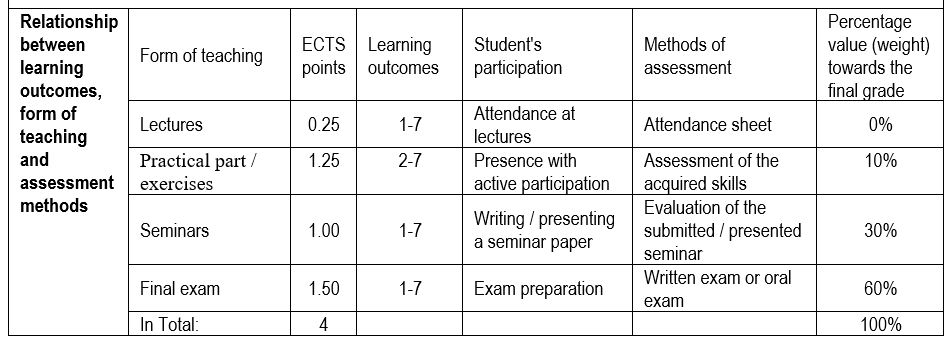Introducing students to the health effects of environmental factors and the definition and main tasks of health ecology, as well as to the ecological concept of health and health/ecological standards. Getting acquainted with the historical development of the ecological idea in medicine and the way and importance of taking environmental history and performing an environmental examination. Introduction to the impact of different chemical factors on human environment and health (toxic metals, gases and steam, pesticides, polycyclic aromatic hydrocarbons, polychlorinated biphenyls, dioxins and furans, phthalates). Introduction to the influence of selected physical factors (thermal factors, atmospheric pressure, electromagnetic radiation) on human health. Introduction to the impact of biological and psychosocial factors on health. Acquiring knowledge of the water/health relationship in terms of the public health aspect of drinking water supply, and drainage and cleaning of waste waters. Acquiring knowledge on the effects of air pollution (external and internal) on health and on the particularities of the interaction between waste management, as well as soil contamination and human health. Getting acquainted with the interrelations between housing and health, and the consequences of harmful effects of housing conditions on health. Acquiring knowledge of the food/health relationship with emphasis on the impact of microbiological and various chemical contaminants on human health. Acquiring knowledge of global health/ecological problems and their impacts on the health of the population.
Environment and health. Changes in the environment and human development. Health effects of environmental factors. Definition and tasks of health ecology. Ecological concept of health. Health and ecological standards. Development of an ecological idea in medicine. Ecological history and examination. Ecological method of research. Fundamentals of ecotoxicology. Biological monitoring and biological markers. Environmental monitoring and biological monitoring. Risk analysis in health ecology. Organization of health ecology in Croatia, current state and perspective. Ethical issues in health and environmental research. Chemical factors of the environment. Toxic metals. Gases and vapour. Pesticides. Polycyclic aromatic hydrocarbons. Polychlorinated biphenyls. Dioxins and furans. Phthalates. Environmental mutagenesis. Environmental carcinogenesis. Environmental impact on reproduction. Physical factors of the environment. Thermal factors. Atmospheric pressure. Electromagnetic radiation. Biological factors of the environment. Biological factors in water. Biological factors in food. Biological factors in the air. Biological factors in the soil. Psychosocial factors of the environment. Socio-economic status. Education. Employment. Marital status and family. Housing and urbanization. Health and quality of health care services. Water and health. Air pollution and health. Waste management and health. Soil contamination and human health. Housing and health. Food and health. Global health/ecological problems. Ecological incidents and disasters.
Required course materials:
Puntarić D, Miškulin M, Bošnir J. Zdravstvena ekologija. Medicinska naklada: Zagreb, 2012.
Upon completion of this course, students will be able to:
- Explain the ecological concept of health and health-ecological standard;
- Define possible health effects of environmental factors;
- Identify and show the effects of various environmental factors (chemical factors, physical factors, biological; factors, psychosocial factors, water, food, air pollution, waste, soil, housing) on the health of the population;
- Identify and evaluate the impacts of global health and environmental problems on the health of the population;
- Clarify and comment on the health service and its work;
- Self-assess and organize preventive measures for the preservation and promotion of oral health;
- Critically assess the relationship between the patient's oral and systemic health status and predict the consequences of the social and physical environment on the patient's oral health;



